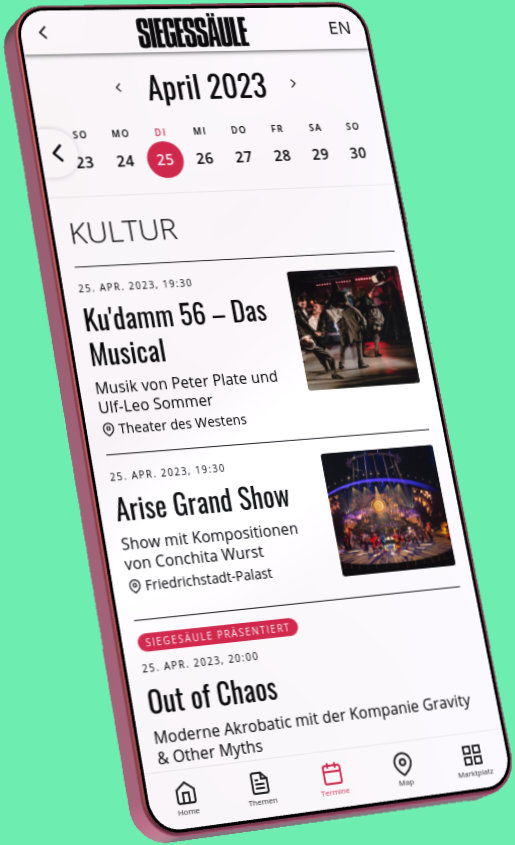Everything you need to know about your Visit to Berlin

With a population of more than 3.5 million, Berlin can sometimes seem a bit overwhelming. What is the best way to get from A to B? What do you need to know about safety? And is it legal to consume drugs in Berlin? You can find all the information you need on these and other questions here!

Payment
In Berlin, the currency is the euro. If you want to swap currencies, there are bureau de change outlets in some parts of the city. However, currency exchange comes with extra charges, so you might be better off using a credit card to withdraw cash from ATMs. You will need cash in some places - although Berlin is the capital of one of the largest industrialised nations in the world, you cannot always pay by card, especially in restaurants, small shops, bars, and even some clubs. So, it doesn't hurt to carry cash with you at all times.

Transport
Berlin has a very well-developed public transport network. On weekends, all manners of transport run around the clock. During the week, underground trains are replaced by night buses from around 1:00 a.m. in the morning and the S-Bahn stops running. Trams only run every 30 minutes during this time. From around 5:00 a.m., however, everything runs routinely again during the week. The fare system can be a bit overwhelming at first glance. It is probably worth buying either single tickets, of which you can buy four together at a reduced price (Vier-Fahrten-Ticket), which you can then use as needed. Alternatively, there are day tickets or a weekly ticket. You can buy the tickets via the Berliner Verkehrsbetriebe app (BVG app) or at ticket machines. Important: The airport is located outside the city, so you need a ticket that is also valid in fare zone C to travel to or from the airport. In addition to public transport, you can also rent e-scooters or bicycles in Berlin. Taxis can be hailed at the side of the road. Providers such as Uber or Bolt also provide rides.

Drugs
In Berlin you are allowed to consume alcohol on the street - you don't need a brown paper bag! You can also smoke outside almost everywhere. Bars and clubs often have a designated smoking area. Sometimes, however, you are not allowed to smoke at all or everywhere. The legalisation of cannabis is currently being mooted by politicians. The reality is that it is not uncommon to have the aroma of a joint wafting around on the streets of Berlin. However, this can lead to a conflict with the police, as it can be perceived as endangering others, such as children. Anyone caught by the police with more than ten grams of marijuana can get into trouble. Party drugs are illegal in Berlin. Nevertheless, they are often offered to you in relevant clubs. The rule of thumb is not to take drugs from strangers, because you never know exactly what is in them.

Health
If you have an accident or need urgent medical help, call the fire brigade on 112. If your life is not in danger but you still need medical help quickly, you can call the medical emergency service on 116117. In Berlin, nightlife can sometimes be a little more permissive. If you are afraid that you have been infected with HIV, you can get advice at St. Joseph Hospital or Auguste Viktoria Hospital about so-called post-exposure prophylaxis (PEP). This must be started as soon as possible after the exposure to risk. You can be tested for HIV or other sexually transmitted diseases at several test centres. The website Kompass.hiv of the Deutsche Aids-Hilfe helps you to find the right test centre.
St. Joseph Hospital
Wüsthoffstraße 15, 12101 Berlin-Tempelhof
Metro Paradestraße
Website St. Joseph Hospital
Auguste-Viktoria-Hospital
Rubensstraße 125, 12157 Berlin-Steglitz
S-Bahn Feuerbachstraße
Website Auguste-Viktoria Hospital

Safety and Security
On the whole, Berlin is a very liberal and queer-friendly city. However, homophobic and queer hate attacks can also occur here. The Berlin police are trained in this regard and ask you to report assaults of this kind. In case of emergency, you can reach the police by calling 110. Otherwise, the contact person for LGBTQI* issues at the police can be reached at the following number: +49-30-4664-979444. More information can be found here. The 'assault phoneline' of the queer organisation Maneo also offers support. The number is +49-30-2163336.
Further information
Subscribe to Place2be.Berlin's Instagram channel for the latest info and impressions from Berlin!
The Place2be.Berlin city map shows you interesting queer locations all over Berlin.
You can find a complete overview of all events for every single da on the event pages of SIEGESSÄULE, Berlin's famous queer city magazine.
Texts: Julian Beyer












